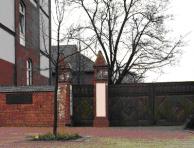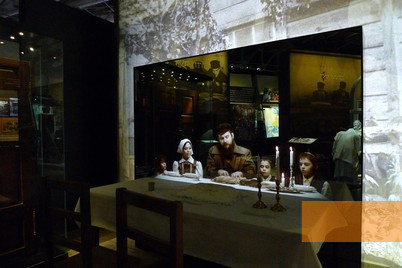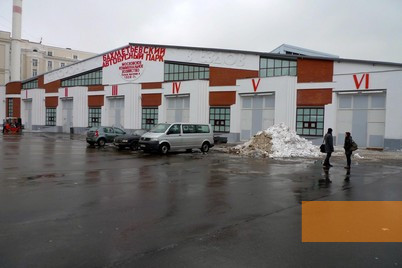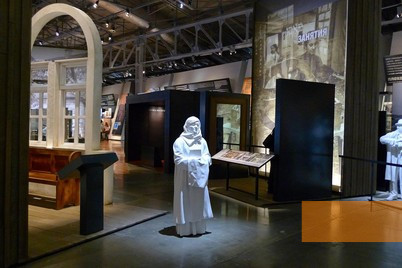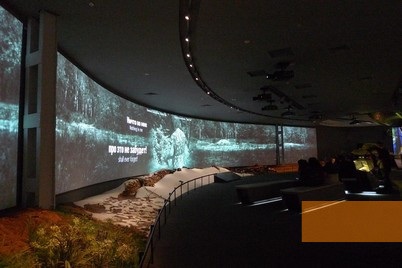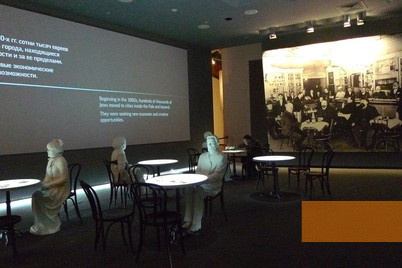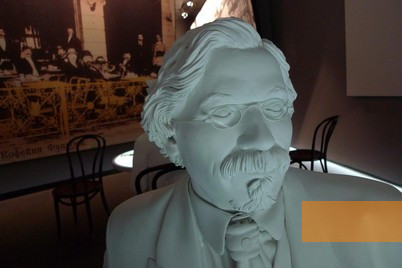In November 2012 the probably largest Jewish museum in the world opened in Moscow. It is dedicated to the history of Russian Jewry from the 18th century to the present and provides general information on Jewish history and culture.
Up to the 18th century there were hardly any Jews living in Russia, but with the expansion of the Russian Empire to the west Europe's largest Jewish population came under Russian rule. The Jews mainly lived in what is today Eastern Poland, the Ukraine, Belarus and the Baltic states, the then Polish-Lithuanian Commonwealth. After the Partition of Poland the territory was annexed by Imperial Russia. Empress Catherine II decreed that Jews could only live and work in this so-called Pale of Settlement in the west of Russia. Many Jews lived mostly autonomous in small towns and villages in the countryside, the shtetls. In Czarist Russia there were again and again pogroms against Jews. Not until in the early days of the 20th century were Jews allowed to leave the Pale of Settlement and to choose their trade freely. After the October Revolution in 1917 free practice of religion was made more and more difficult for the Jews, synagogues were closed. During the Great Purge (1937/38) under Stalin many Jewish clerics were arrested. Following the attack on the Soviet Union in 1941 the Nazis murdered almost all the Jews that lived on the territory of the former Pale of Settlement. Even after the death of Stalin (1953) the Soviet leadership championed the closing of synagogues and the oppression of religious traditions. This only changed with Mikhail Gorbachev's policy of détente.
In Czarist Russia Jews have again and again been victims of oppression and pogroms, later in the Soviet Union Jews have been persecuted for religious or political reasons. From 1941 the more than five million Jews living in the former Pale of Settlement came under German occupation. Almost all of them were murdered by the Nazis.
In 2012 the first Jewish Museum in Moscow opened: A rather small museum informing about the history of the Russian Jewry. Only half a year later the Jewish Museum and Tolerance Centre Moscow opened in November. 2012 The museum was established in the Bakhmetevsky Bus Garage from 1927, designed by Konstantin Melnikov and a masterpiece of Russian constructivism. The founding of the museum was mainly financed by donations from Russia and from overseas and politically and financially supported by Russian President Vladimir Putin. With construction costs of 50 million dollars and a 8,500 m² exhibition space it is presumably Europe's largest museum of its kind. It provides general information on Jewish history and culture, the history of the Russian Jewry, their life between shtetl and assimilation and their fate in the Soviet Union and during the German occupation. Special features are a 4D cinema and various interactive displays helping visitors to understand Jewish life and history.
- Name
- Ewrejskij muzej i zentr tolerantnosti
- Address
-
ul. Obraztsova, 11
127055 Moskwa - Phone
- +7 495 645-05-50
- Web
- http://www.jewish-museum.ru/
- info@jewish-museum.ru
- Open
- Sunday-Thursday 10.00 a.m. to 10.00 p.m., Friday 10.00 a.m. to 3.00 p.m. Closed on Saturdays and Jewish holidays
- Possibilities
- Exhibition, bookshop, educational offers for children, youths and adults
